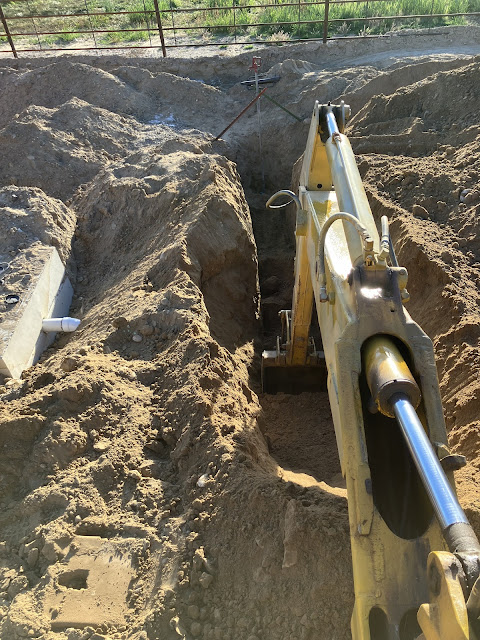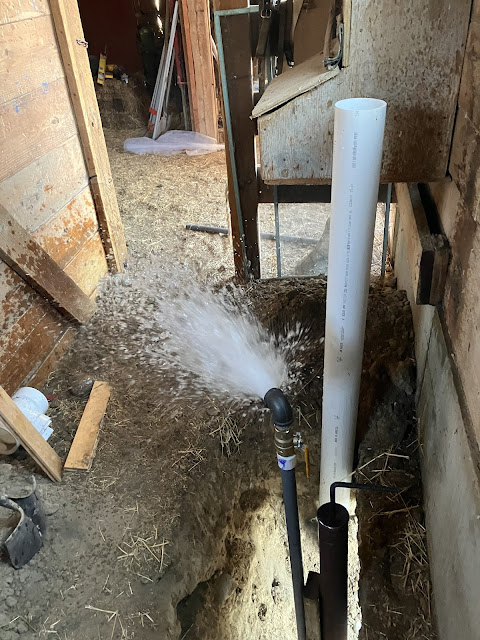About a month ago, Ian Welles asked if I'd like to ride with them when they ship their calves. You bet. When I know ahead of time, I can put it on the calendar and plan to work outside the office that day. Time well spent.
We met up at 0600 and traveled southeast of Buffalo, arriving at the shipping corrals at the break of dawn.
Beautiful view of the Big Horns from here.
Chief is still a bit lame, so I had to break out the brute. I'm not going to lie, I was a bit scared. She got a little broncy on me in the spring, so I've been avoiding her ever since. But it was time to cowboy up. First I changed her bit. She responded well to the last one, but really didn't like it. Then I took time to ride her the other day. Even when I picked her up this morning I swung in the saddle for a lap or two. This did much for both of our's confidence.
Courage is being scared to death and saddling up anyway. - John Wayne.
Once the posse was gathered, Ian lined us out.
This pasture is on the western edge of the burn, which is seen in the distance. In fact, this is almost dead center of where the lightning struck and took off both north and south. Ian's family ranch was hit hard.
Cool country. Nice little bottom spring.
Neat rolling hills and breaks.
Giddy up! Mollie did great. No hesitation or froggyness.
All the riders came together for the final push.
We had guys in the back, keeping them moving.
And a few on the side, keeping them in line.
Once through the gate and in the corral, we hobbled our horses.
Hobbles are slick. You just figure 8 them around the front two ankles of your horse, and walk away. They can still move and graze, but not really get away.
First, we weaned the calves from the cows.
Then we separated the heifer calves from the steers. I manned the gate.
The steers went straight on the scale to be weighed and sold. These portable scales are handy. It saves a guy from running the cattle to town to weigh and load, which calves will loose weight with all that moving around. Buyers call this effect shrink. Scales like this have to be state inspected within eight months of use.
After we had everything separated and sexed, we stopped for a muffin break. Pretty tasty.
Then we backed up the trucks and got to work.
One final check before we loaded up. The steers were sold and went somewhere in the midwest to be fed-out. They shipped the heifers to Worland to be fed-up before selling later in the year.
BJ kept the dogies moving.
Up the chute and on the truck.
Should be a cozy ride over the mountain.
Game over.
Cowboys win.
Ian's wife, Megan, brought out a full-on meal to celebrate.
Pretty fancy picnic on the prairie. Real silverware and banquet beer.
There was one more job to do, though. Pull the bulls.
Once gathered, we headed them out to a neighboring pasture about a mile or two away.
Enjoy the winter, boys. Thanks for your service.
Alls well that ends well.
A good time was had by all. This is no day off, though. Plenty of work, for sure. But plenty of ministry as well. Conversations about God from the saddle are about as natural as they get. No pretense there, only truth. When you're horseback, reality is real. God is not an idea when you're in the saddle. He's the Man that created the horse you are riding and the cattle you are chasing. He's the God who permitted the fire and the God who saved you from the fire. And, He's the Father that has provided in the past and promised to provide in the future. Life is good. Let us ranch.









































































